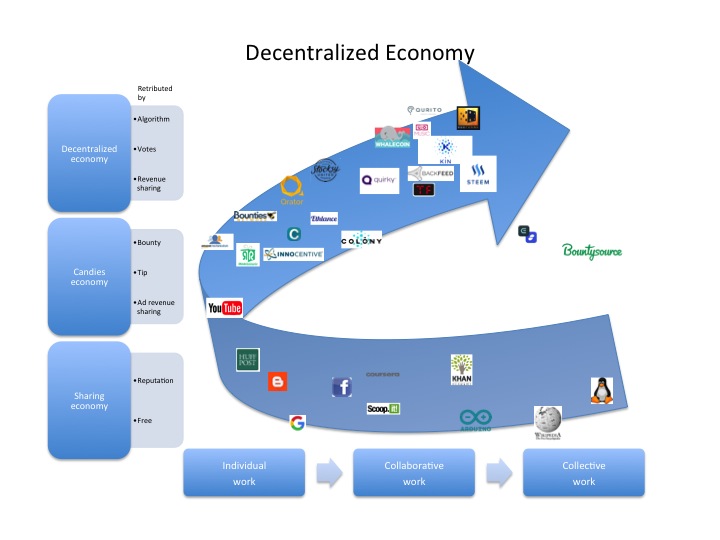There are a lot of sectors that blockchain technology can improve. Because of the unique cryptography and decentralized nature of its system, it offers a digital security that no other services possess. Experts from varying fields are looking at ways how to integrate this newly ushered tech into their respective fields.
One such sector that experts are considering is the use of blockchain to vote during elections. A government can theoretically establish a digital ID for its citizens and use that as confirmation if a specific individual actually voted or not. The computer can cross-check to verify this using the unique blockchain attached to each digital ID. If the computer confirms that a person did vote, then that vote can then be counted. If the confirmation denies it, then no one gets the vote.

But there are also experts who are opposed to the idea of digital voting. Duncan Buell is one of them. Buell has been against this idea for three years now saying that the notion is “completely nuts.” He holds tenure at the University of South Carolina as a computer science professor and part of his work involves ensuring voting integrity during elections.
Despite his opposition, others are still convinced that blockchain should be implemented in this sector of the government. One major advantage of this proposition is that blockchain offers transparency while maintaining the anonymity of the voter. It allows votes to be tracked, tallied, and cross-check using different sources all the while hiding the identity of the voter. Compare this to the current paper-based system and the argument shifts in favor of digital voting.
Cybersecurity firm Kaspersky Lab is also onboard with the idea. In fact, they have already created a blockchain-centered secure online voting system. Horizen State, a company that’s also developing a similar system, are already speaking with two governments who are interested in implementing this idea.
They are tight-lipped which countries are involved, but they’ve recently sent their consensus equipment to India, so the speculation is centered in that region. However, Horizen State’s Nimo Naamani denied this conjecture.
Naamani did say that one of the two government that they’re speaking with is interested but doesn’t want to be the first to use the system. The other one is much more involved and Naamani speculates the country will conduct a blockchain voting system in the next four years.
The U.S. is also interested with digital voting as it has recently completed its first government-managed, blockchain-supported primary state election held in West Virginia on May 8. However, this isn’t a full-scale blockchain voting run as it only involved a small group of people like military personnel. But the intent to explore the possibility is definitely there and strengthens the desire of governments to move from paper-based elections to digitalized ones.



 SpaceX Reports $8 Billion Profit as IPO Plans and Starlink Growth Fuel Valuation Buzz
SpaceX Reports $8 Billion Profit as IPO Plans and Starlink Growth Fuel Valuation Buzz  Jensen Huang Urges Taiwan Suppliers to Boost AI Chip Production Amid Surging Demand
Jensen Huang Urges Taiwan Suppliers to Boost AI Chip Production Amid Surging Demand  Palantir Stock Jumps After Strong Q4 Earnings Beat and Upbeat 2026 Revenue Forecast
Palantir Stock Jumps After Strong Q4 Earnings Beat and Upbeat 2026 Revenue Forecast  Baidu Approves $5 Billion Share Buyback and Plans First-Ever Dividend in 2026
Baidu Approves $5 Billion Share Buyback and Plans First-Ever Dividend in 2026  Oracle Plans $45–$50 Billion Funding Push in 2026 to Expand Cloud and AI Infrastructure
Oracle Plans $45–$50 Billion Funding Push in 2026 to Expand Cloud and AI Infrastructure  SoftBank and Intel Partner to Develop Next-Generation Memory Chips for AI Data Centers
SoftBank and Intel Partner to Develop Next-Generation Memory Chips for AI Data Centers  Elon Musk’s Empire: SpaceX, Tesla, and xAI Merger Talks Spark Investor Debate
Elon Musk’s Empire: SpaceX, Tesla, and xAI Merger Talks Spark Investor Debate  Anthropic Eyes $350 Billion Valuation as AI Funding and Share Sale Accelerate
Anthropic Eyes $350 Billion Valuation as AI Funding and Share Sale Accelerate  Google Cloud and Liberty Global Forge Strategic AI Partnership to Transform European Telecom Services
Google Cloud and Liberty Global Forge Strategic AI Partnership to Transform European Telecom Services  Nvidia Nears $20 Billion OpenAI Investment as AI Funding Race Intensifies
Nvidia Nears $20 Billion OpenAI Investment as AI Funding Race Intensifies  Amazon Stock Rebounds After Earnings as $200B Capex Plan Sparks AI Spending Debate
Amazon Stock Rebounds After Earnings as $200B Capex Plan Sparks AI Spending Debate  Nvidia, ByteDance, and the U.S.-China AI Chip Standoff Over H200 Exports
Nvidia, ByteDance, and the U.S.-China AI Chip Standoff Over H200 Exports  Nvidia CEO Jensen Huang Says AI Investment Boom Is Just Beginning as NVDA Shares Surge
Nvidia CEO Jensen Huang Says AI Investment Boom Is Just Beginning as NVDA Shares Surge  Nintendo Shares Slide After Earnings Miss Raises Switch 2 Margin Concerns
Nintendo Shares Slide After Earnings Miss Raises Switch 2 Margin Concerns  Sam Altman Reaffirms OpenAI’s Long-Term Commitment to NVIDIA Amid Chip Report
Sam Altman Reaffirms OpenAI’s Long-Term Commitment to NVIDIA Amid Chip Report  AMD Shares Slide Despite Earnings Beat as Cautious Revenue Outlook Weighs on Stock
AMD Shares Slide Despite Earnings Beat as Cautious Revenue Outlook Weighs on Stock 































